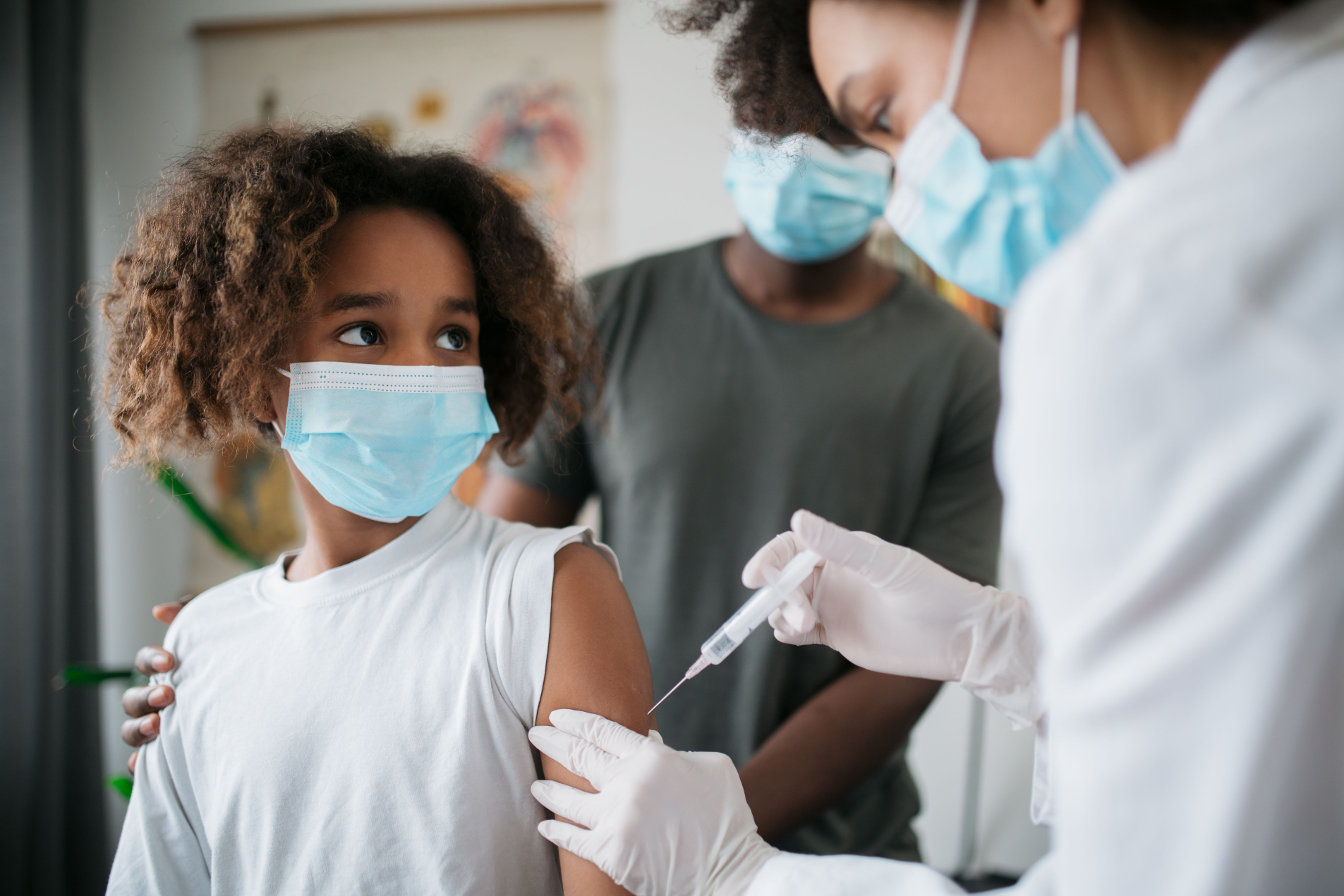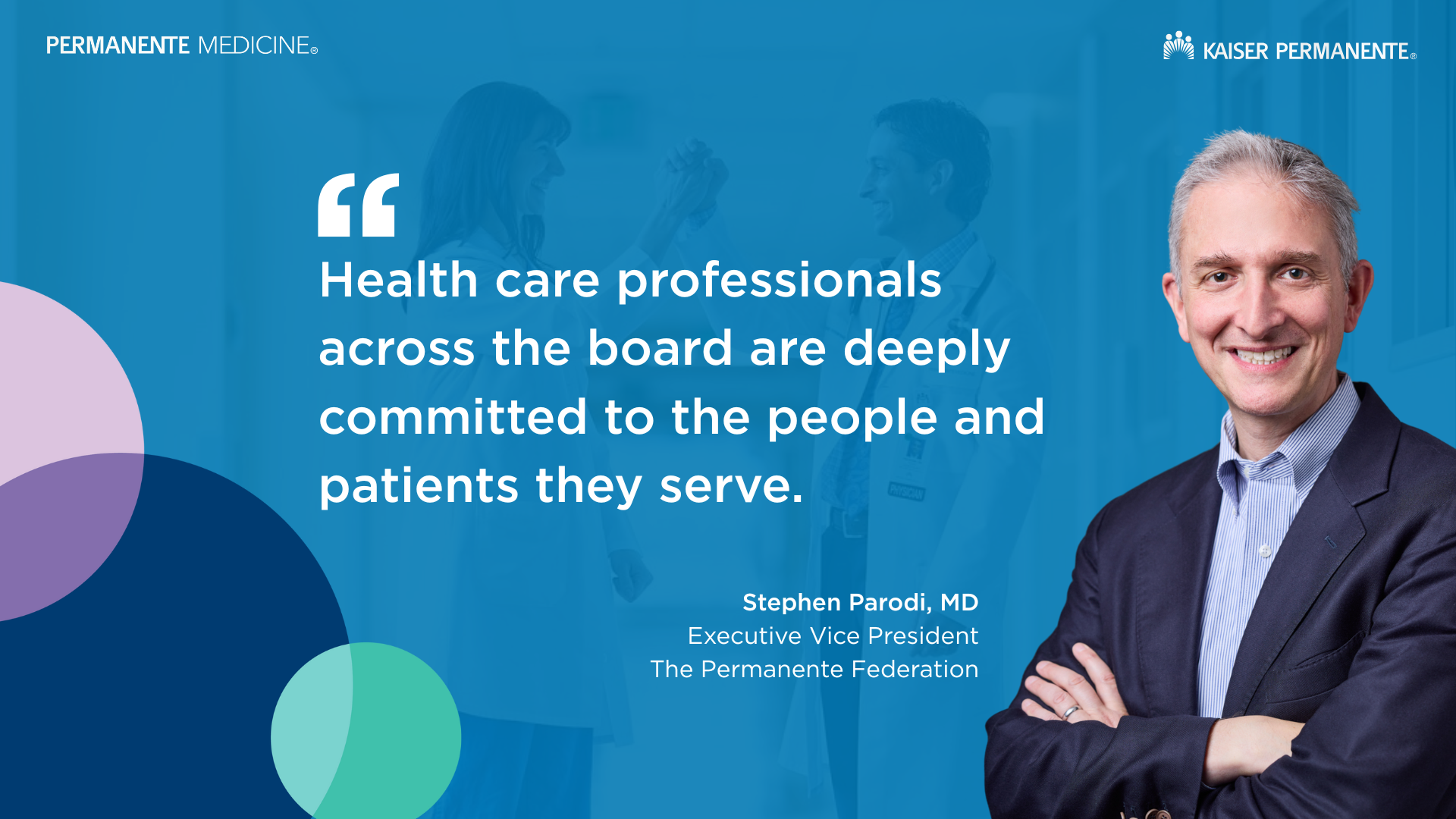Explore valuable lessons learned from Permanente physicians in 2025's rapidly changing health care landscape.

Why I chose to vaccinate my child against COVID-19

Being a parent is a joy and a responsibility. Sometimes I struggle with decisions on how to raise my kids and especially how to keep them safe. Those questions have been particularly tricky during a global pandemic.
For almost 2 years, parents have wrestled with how to balance social distancing and masking with the need for kids to socialize and have a normal, happy, healthy childhood. We parents have been amazingly resilient in adapting and navigating how to best protect our kids.
Now we have some more help. The Food and Drug Administration has authorized emergency use of the Pfizer COVID-19 vaccine for children ages 5 to 11, and the vaccines are available at no cost from a clinic, pharmacy, or provider near you.
For the first time since the pandemic began, we have the ability to protect these children with a vaccine. Administered under the most intensive monitoring in U.S. history, studies have shown that the COVID-19 vaccine is safe and effective for adults and children age 12 and older. Now after thorough research, studies show that the Pfizer vaccine is also safe and effective for children age 5 and older.
Parents now have a decision to make about safeguarding their children by getting them vaccinated.
When it comes to new trends, I would not consider myself an early adopter, but my wife and I have already signed up our own son for his shot. Here’s why we feel good about the decision:
COVID infection and transmission is up for school-age children
This fall, most school-age kids went back to the classroom in person. I think that’s great. In-person school is an important way to learn the essentials like reading, math, and how to interact well with others. However, it has challenges, too. Even with masking and distancing, there has been increased COVID transmission among school-age children. Compared with the summer, transmission has more than doubled in this age group. Fortunately, most children do not become seriously ill.
But here’s the decision factor: Some children do get very seriously ill. Some children will recover fine but transmit COVID-19 to other family members who might be more vulnerable to complications, like grandparents. Some will suffer lasting symptoms from COVID-19 for weeks or months with “long-haul” COVID. (This needs more study; we still don’t know how significant “long-haul” symptoms are in kids, but a recent report found 14% of 11- to 17-year-olds had symptoms months later.)
My goal as a parent is to make the chances of any of those consequences as small as reasonably possible.
Related story: “Younger children waiting for COVID-19 vaccines need to be protected.”
Billions of people have already had the COVID-19 vaccine
I took my first dose back in December 2020 and have not had any problems, but as a medical professional, I know that I can’t judge the risks by just one person’s experience. Worldwide, 4 billion people have taken the vaccine. In my local area of Kitsap County (Washington) alone, more than 179,400 people age 12 and older, about 66% of the county’s population, have gotten at least one dose.
We know that many people have wanted to “wait a while” before getting their children, or themselves, vaccinated to see if any long-term effects are emerging.
The overwhelming number of those vaccinated have not had serious adverse events. The history of vaccines tells us that severe side effects, if they do occur, usually happen within the first 2 months after vaccination. That data also backs up the original studies submitted to the FDA. While there have been some cases of serious side effects since Americans started getting the vaccine almost a year ago, they have been very rare.
We all want what is best for our kids, but sometimes it is tough to know what that is.
There have been rare cases of heart inflammation, called myocarditis, reported after vaccination for COVID-19 in other age groups. There have not been any reports in the 5- to 11-year-old age group, but FDA scientists note that the clinical trial for 5- to 11-year-olds was not large enough to detect extremely low incidences of myocarditis. In total, 877 cases of vaccine-induced myocarditis have been reported in patients older than 11 years. Most of these cases have occurred in adolescents and young adults. The risk is extremely low considering that more than 100 million vaccine doses have been administered in this age group. The alternative of not getting vaccinated is also not without risk since COVID-19 infection itself can cause myocarditis.
Those vaccinated have gained a strong layer of protection against serious illness from COVID-19 infection. In the past month in Kitsap County, the rate of COVID-19 infections was 4.3 times higher for unvaccinated people than among fully vaccinated people. Even when vaccinated patients later test positive for COVID, they clear the infection faster and are extremely unlikely to end up in the hospital or ICU.
A reduced dose formulated for the age group
My friends who are pediatricians have a saying: Kids are not just little adults. We can’t assume that they will react in exactly the same way that adults do to the same treatment. That is why the dose of COVID-19 vaccine that was studied in 5- to 11-year-olds was reduced substantially to one-third the adult dosage to prioritize safety, toleration, and immune response. Then it was studied in more than 3,100 children.
When it comes to vaccines, we expect to see any side effects soon after administration, but the study was continued for 6 months to make sure we understood any delayed effects. The study found that kids gain protective antibodies at similar rates to adults, and the results show comparably impressive safety records. The vaccine was found to be 90.7% effective in preventing COVID-19 in children ages 5 through 11. Study data also shows that the vaccine reduces the risk of symptomatic COVID-19 in children if they do become infected.
Sign-up today for our bi-monthly newsletter and receive alerts of new Permanente Medicine content.
Protecting kids too young to get the shot
Eventually, we will have studies of COVID-19 vaccines in children younger than 5, but we don’t have results yet. In the meantime, one of the biggest risk factors for kids too young to get the vaccine is the other people at home. My wife and I have been vaccinated, in part to protect our kids. Now it is time for our vaccine-eligible child to get vaccinated and help protect his younger siblings.
We all want what is best for our kids, but sometimes it is tough to know what that is. As a parent, I make decisions every day that impact the well-being of my children. Some are small, like whether I should sign them up for soccer or swimming. Some are easy, like whether I should give them candy or vegetables with their lunch. Whether or not to get my son vaccinated for COVID-19 was definitely a big decision, but it was not a tough decision. One benefit of being a physician has been familiarity with evaluating medical evidence, and I am confident that the evidence in this case is clear: COVID-19 vaccination for 5- to 11-year-olds is safe and effective.
Peter Barkett, MD, is an internal medicine physician with the Washington Permanente Medical Group, practicing at Kaiser Permanente Silverdale Medical Center. This article is reprinted with permission from the Kitsap Sun in Bremerton, Wash.


